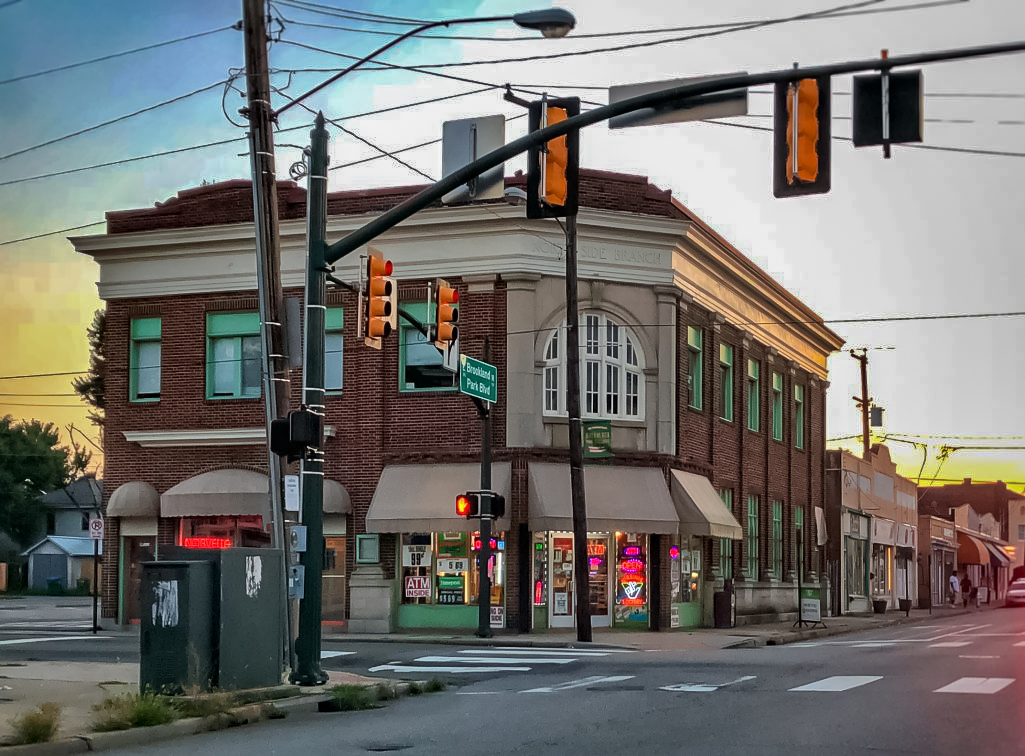Late last fall, my wife and I moved into our first house. We had gotten married a couple of months before and were really excited to get out of a tiny bedroom in a house full of roommates. We ended up renting a house in the Brookland Park neighborhood, just a bit north of the downtown area, and we really liked it. But almost as soon as we moved in, we started seeing ominous signs of gentrification creeping into our neighborhood.
You might think this is ironic — a white lady worrying about gentrification in the traditionally African-American neighborhood she’s moved into. And you’re right; there’s an extent to which my wife and I are part of the gentrification process. But I’m a trans woman married to another woman. Both of us have independent-contractor jobs that pay well below the city’s average per capita income. We live paycheck to paycheck, unable to establish a significant credit history.
All of these factors make it almost impossible for us to move into this city’s traditionally white neighborhoods, which are dominated by upwardly-mobile middle-class families with what people like to call “real jobs.” If we want to rent from a company that won’t screen us out during the application process, we have to rent from the same landlords that are willing to rent to working-class families of color. There really isn’t anywhere else we can afford to live.
But once the sort of younger middle-class white hipster types start seeing people like us — queer people, artists, and other cultural outsiders who thrive on lower income requirements (and, it must be said, are predominantly white) — on the streets of a particular neighborhood, they start feeling safe there, when they wouldn’t necessarily have before. Soon, the young white entrepreneurs with college degrees and access to startup capital are making plans for the area.


That process is already underway in Brookland Park. Richmond BizSense recently reported on development groups who are in the process of building a brewery and a “business accelerator” on a two-block stretch of Brookland Park Boulevard, just west of North Avenue. Earlier this year, plans were revealed — again by BizSense — for a $14 million apartment complex at the other end of Brookland Park Boulevard, right next to the intersection known as Six Points.
It’s clear what motivates such projects. Developers are watching the massive boom taking place in Scott’s Addition, spurred mainly by condos and breweries. They want in. And while it may be too late to buy into Scott’s Addition, they’re looking for places where the land is still cheap. A working-class African-American neighborhood on Northside definitely fits the bill.
Here’s the problem: unlike Scott’s Addition a decade ago, Brookland Park is not empty. There are already black-owned businesses lining the dozen or so blocks of Brookland Park Boulevard between Griffin and Barton Avenues. The intersection of Brookland Park Boulevard and North Avenue is downright busy during daylight hours. Granted, not every storefront is occupied, but many are, and residents of the neighborhood can be seen frequenting them on a daily basis.


Regardless, property values are not high, and developers noticing the northward progress of VCU students and youthful post-graduates into the area are jumping at the chance to snatch up undervalued buildings and get the gentrification process started. At the moment, the getting is good — Safety Team Brewing and Urban Capital Collaborative got their parcels of land, and the buildings that sit on them, for $25,000 each.
Savage Apparel bought their previous location, at the corner of Brookland Park Boulevard and Hanes Avenue, for $105,000 in March 2017. Less than 18 months later, they decided to move two blocks up the street, and were able to sell their old building for $250,000 — a 238 percent value increase in under a year and a half. It seems buildings around here get more valuable if white-owned companies occupy them.
When property values take a jump because new businesses seeking a middle-class (and, again, predominantly white) clientele move into the neighborhood, it’s only a matter of time before the local residents can’t afford the rent anymore, and longtime area businesses are pushed out in favor of hip new establishments brought to you by the next wave of middle-class entrepreneurs.


This is a cycle we’ve seen in Richmond for years now — one that’s been chasing me from one neighborhood to another in pursuit of affordable rents for over a decade. A laundry list of Richmond neighborhoods — The Fan, Oregon Hill, Scott’s Addition, Church Hill, Manchester — have been gentrified out of my price range since the early 2000s. But it’s not even myself or my wife I worry about. We have cars, we can afford to commute to our jobs from more far-flung locales. What happens to Brookland Park residents who rely on public transit when they suddenly find themselves having to move significantly farther away from their jobs just to find affordable rent?
The working poor aren’t exactly at the forefront of most people’s minds when they think about the revitalization of lower-income neighborhoods in Richmond. And who can blame them? The majority of Richmond’s residents don’t have a ton of disposable income to throw around. According to the 2010 US census, median household income inside the city limits was around $38,000; neighboring Henrico and Chesterfield counties had median household incomes of $60,000 and $71,000, respectively. For businesses within the city, attracting those county-dwellers into town with fun, quirky places to spend an evening is the surest way to make businesses profitable.
That said, it seems the question of what actually will benefit those living within the Richmond city limits isn’t asked nearly often enough — and local press carries a share of the blame, too often taking an overly credulous attitude toward any announcement of urban redevelopment. Style Weekly’s recent Best Of Richmond issue gave an award for “Best Revivalist Couple” to hedge fund CEO Michael Hild and his wife, Laura Dyer Hild, citing their work as property owners in the quickly-gentrifying South Richmond neighborhood of Manchester.
Speaking of the responsibilities of local press, Hild is also the head writer for The Dogtown Dish, a local web publication that has non-coincidentally expressed very positive views about developments that would directly serve its creator’s economic interests. In addition to multiple glowing reports about businesses the Hilds are involved in, the site also reports about a “development boom” in Manchester, and pushes the Richmond Redevelopment Housing Authority toward “developing the enormous swath of properties it holds in its portfolio.” Reports like this might read differently once you know who’s writing them.
Of course, one aspect of that work involved a push to extend the Manchester Residential and Commercial Historic District (and its corresponding tax credits for developers) into the Blackwell area, which borders Manchester to the west, and is still a lower-income neighborhood — one considered by The Reinvestment Fund to be a food desert. One of the Hilds’ plans to revitalize Blackwell was to reopen the long-shuttered Community Pride location between Bainbridge and Hull Streets. They didn’t announce plans for the building when they purchased it, but other buildings they’ve purchased in the area now host a brewpub and an upscale donut shop, so it seems unlikely that bringing an inexpensive neighborhood grocery store to a neighborhood in need of one was at the top of their list.


The Hilds’ future plans for development in the area may very well come to naught, though; a recent decision by the Virginia Board of Historic Resources, to delay considerations of expanding the Manchester Historic District into Blackwell until its potential impact on the community can be further studied, is a sign of progress. It shows that the voices of community residents and advocates are starting to reach powerful people who previously only had ears for developers. The Hilds responded to this decision by declaring that they would be aborting plans to invest $250 million into the area. This certainly isn’t the most positive result possible, but if that investment would ultimately have made Blackwell unaffordable for its residents, it’s hard to see it going away as an entirely bad thing.
From Blackwell to Brookland Park and beyond, the City of Richmond’s issues with gentrification need to be addressed. As a newly-married queer woman just trying to afford the rent, I don’t have any big ideas for solutions. But I know of a few questions that area developers — and those who watch over and report on their actions — should be asking. What happens to working-class residents when their neighborhoods are gentrified? Where do the minimum-wage workers that staff drugstores and fast-food joints go when they can’t afford to live within a ten-mile radius of their jobs?
Most importantly, what can those with power over Richmond’s future do to put those who actually live within the city limits first? Urban redevelopment is good, and it’s hard to have a problem with businesses moving into long-vacant buildings. But before we all thoughtlessly praise upscale businesses for capitalizing on tax credits and low property values, we need to consider how those who actually live in the area will be affected.
Photos by Sara Wheeler



